School of Social Work News
Pages
 Ayesha Ghazi Edwin Talks About the Local Effects of Federal Cuts
Ayesha Ghazi Edwin Talks About the Local Effects of Federal CutsClinical Assistant Professor Ayesha Ghazi Edwin spoke with MLive about the effects federal cuts will have on Food Gatherers, the lead agency for hunger relief in Washtenaw County.
“Our county also happens to be experiencing one of the fastest rising rates of homelessness in our history with specific effects to older adults,” she said. “These challenges weren’t created overnight and they won’t be solved by one action, but they do call us to act locally when federal support falls short.”
- May 29, 2025
- Learn more »
 Katie Edwards Speaks with CNN About the Heartbreak of Shutting Down Clinical Studies
Katie Edwards Speaks with CNN About the Heartbreak of Shutting Down Clinical StudiesLast month, Professor Katie Edwards was featured on CNN’s “One Thing” to discuss the effects of federal cuts to health research. Edwards — whose research focuses on preventing and responding to sexual violence among LGBTQ+ and highly vulnerable populations — has had six NIH grants cancelled this year. During the conversation, she specifically detailed the gut-wrenching process of shutting down a clinical study.
“It's been, quite frankly, it's been really chaotic. I mean, I think we've been doing our best to manage this in the most ethical way, putting participant safety as our top priority. This is unprecedented and so no amount of training in your PhD or institutional resources are prepared for this onslaught of determinations,” said Edwards. “The analogy I can think of is if you have someone on an operating table and mid-surgery, you just say, okay, we're gonna leave, and you just leave them there. I mean it's really dangerous, especially when you are working with groups of people who you know are experiencing disproportionate burdens of violence, suicidality, mental health problems.”
“It's heartbreaking and it makes me emotional because I've devoted my life to trying to help kids who often don't have a voice and who are really experiencing some of the most adverse situations. And knowing that our interventions are working, and to see that they can just overnight be taken away, is it's really hard to bear because you feel really powerless.”
- May 29, 2025
- Learn more »
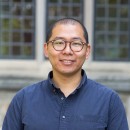
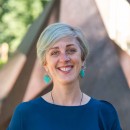
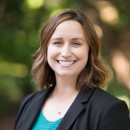
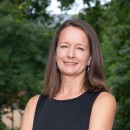
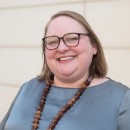
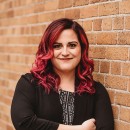
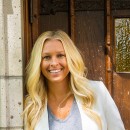
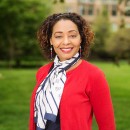

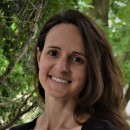
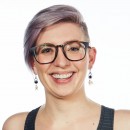
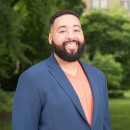
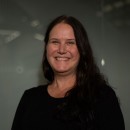
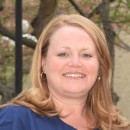 Celebrating 2025 Faculty Promotions
Celebrating 2025 Faculty PromotionsCongratulations to the following faculty members whose promotions were approved by the U-M Board of Regents earlier this month. Sunggeun (Ethan) Park, Rebeccah Sokol and Katie Schultz were promoted to associate professor with tenure. Katie Maguire-Jack was promoted to professor. In addition, Rebeccah Sokol was also promoted to associate professor of Health Behavior & Health Equity at the School of Public Health. These promotions go into effect on September 1, 2025.
Congratulations, also, to those who have received promotions or taken on new roles within our faculty. Christina Dadswell is now the assistant director of field education. Katie Lopez has been promoted to adjunct clinical associate professor.
We are also proud to celebrate the promotions of our field faculty and lecturers. Congratulations:
- Gina Ambrogio, Lecturer II in Social Work
- Amy Burandt, Lecturer IV in Social Work
- Brooke Buys, Lecturer II in Social Work
- Miriam Connolly, Lecturer IV in Social Work
- Irena Glover, Lecturer II in Social Work
- Gregory Hoffman, Lecturer II in Social Work
- Grace Helms Kotre, Lecturer II in Social Work
- Jax Kynn, Lecturer II in Social Work
- Phillip Luttrell, Lecturer II in Social Work
- Douglas Manigault III, Lecturer II in Social Work
- Mari Jan Pitcher, Lecturer II in Social Work
- Diana Seales, Lecturer II in Social Work
- Aimée Vantine, Lecturer IV in Social Work
- May 23, 2025
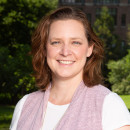
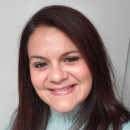 2025 Colleen Karim Award Recipients
2025 Colleen Karim Award RecipientsThis award honors staff who go above and beyond in their roles—championing others, contributing creative and collaborative solutions, and embodying the values that make our School stronger. Named in memory of our beloved colleague Colleen Karim, the award celebrates those who lead with excellence, care and kindness.
- Amber Farmer, Research Administrator Senior (0–5 years of service)
- Erin Zimmer, Director of MSW Student Services (5+ years of service)
- Joseph Galura, CASC Undergraduate Minor Advisor (5+ years of service)
- May 23, 2025
 Joseph Himle Receives the 2025 Distinguished Faculty Award
Joseph Himle Receives the 2025 Distinguished Faculty AwardProfessor Joseph Himle has been awarded the 2025 Distinguished Faculty Award. This highly esteemed peer award recognizes governing faculty members who demonstrate excellence in domains including longevity of service to the School, national recognition in scholarship and service, excellence in teaching and mentoring, outstanding service to the School and the university, and contribution to the professional community.
Himle is the Howard V. Brabson Collegiate Professor of Social Work and a professor of psychiatry at the U-M Medical School.
- May 23, 2025
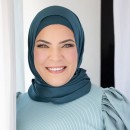 Zaynab Boussi Receives the 2025 Distinguished Lecturer Award
Zaynab Boussi Receives the 2025 Distinguished Lecturer AwardField Faculty and Lecturer Zaynab Boussi has received the 2025 Distinguished Lecturer Award. This highly esteemed peer award recognizes excellence in teaching and mentoring of students and the very highest ideal of a School of Social Work Lecturer.
- May 23, 2025
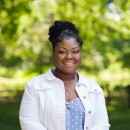 Daicia Price Named 2025 Teacher of the Year
Daicia Price Named 2025 Teacher of the YearClinical Associate Professor Daicia Price has been named 2025 Teacher of the Year by the Student Government. This award is given in recognition of a faculty member who has demonstrated a commitment to improving DEI, made outstanding and positive contributions to the School’s climate, and whose skills, dedication, understanding and caring have positively impacted students. Price is also the director of the School’s Flourish office.
- May 23, 2025
 Matthew Smith Receives the 2025 DSO Faculty Award
Matthew Smith Receives the 2025 DSO Faculty AwardProfessor Matthew Smith has received the 2025 DSO Faculty Award. Awarded by the Doctoral Student Organization, this award honors a faculty mentor who has demonstrated exceptional commitment to mentoring, developing and supporting doctoral students.
Smith is also the School's Associate Dean of Research.
- May 23, 2025
- Flourish 2025 IMPACT Awards
The IMPACT Awards honor outstanding students, faculty, staff, groups and student organizations who have demonstrated a strong commitment to enhancing our community and advancing the School’s mission.
IMPACT Awards 2025 Recipients
Student Impact Award: Daniella Acosta
Daniella Acosta is an MSW student on the Management and Leadership Pathway, a Flourish office student learner, the SSW Student Government Association In-Person Representative, a member of the Global Scholars Program and the Student Engagement Coordinator at the Center for Campus Involvement.
Acosta is dedicated to creating positive change and fostering inclusivity within diverse communities and proactively seeks opportunities to engage with underrepresented groups. She helped co-create the SSW Student Government Advocacy Committee, amplifying the voices of diverse students. She regularly pursues research opportunities to drive meaningful change and has a passion for practical solutions that directly benefit marginalized communities. Her ability to connect with people from all backgrounds and her commitment to listening and learning have made her a trusted leader in programming efforts.
Staff Impact Award: Cerise Carrington
As Assistant Director of Financial Aid, Cerise Carrington consistently goes above and beyond her job responsibilities to ensure all students are supported and educated about financial aid and have opportunities to succeed. Her role in hosting webinars on financial aid addresses an often overlooked aspect of student equity—access to financial resources. Additionally, she supports the School’s Association of Black Social Work student organization and plays a crucial role in the school’s relationship with Historically Black Colleges and Universities (HBCUs) to ensure our student body is diverse and helps create pathways for students to come to the MSW program.
Her impact goes far beyond Ann Arbor. She also works with the Office of Global Activities and will serve as a co-lead for the upcoming Global Extension trip to Ghana. Grounded in the principles of cross-cultural understanding and social justice, this project aims to cultivate a deeper awareness of the African diaspora while equipping students with the tools to become culturally responsive therapists and community organizers.
Faculty Impact Award: Ashley Cureton
Ashley Cureton is an assistant professor in the School of Social Work and the Marsal Family School of Education at the University of Michigan. Cureton explores the educational and mental health needs and outcomes of refugee and migrant children and youth and their families. She seeks to understand how displacement and exploitation impact their overall academic and social development, sense of belonging and cultural identity.
In addition, Cureton integrates her talents in theater and her passion for travel into her work, using her skills to creatively push social change and bring fresh perspectives to complex issues. Her commitment to using diverse approaches makes a difference and has a lasting impact on students, colleagues, and the broader community.
Group Impact Award: Student Government Association Advocacy Committee
The School of Social Work Student Government Association Advocacy Committee has demonstrated exceptional leadership in taking a stand for justice, equality and the protection of vulnerable populations. Their work includes organizing a Know Your Rights event (in collaboration with the SSW Flourish office), which offered essential information and resources to immigrants and refugees on campus. This event provided attendees with the knowledge to navigate legal challenges and protect their rights. Additionally, the committee organized a letter-writing campaign, mobilizing students and community members to advocate for policies important to them. This grassroots initiative provided an effective platform for individuals to directly engage with policymakers, showing the collective power of their voices in the fight for justice.
Beyond these events, the Advocacy Committee has worked closely with the administration to collaborate on important initiatives that ensure a safe and supportive environment for immigrant and refugee communities. Through strategic dialogue and collaboration, they have helped shape inclusivity, support and protection for these populations on campus.
- May 23, 2025
- Rebeccah Sokol Pens Op-Ed Urging Support of Pathways to Potential
Assistant Professor Rebeccah Sokol penned an op-ed in the Bridge Michigan advocating for the preservation of Pathways to Potential. Funded by the Michigan Department of Health and Human Services, Pathways to Potential is a large student support program that the School of Social Work has been evaluating. Budget cuts call for replacing the program with family resource specialists within child welfare services. Sokol argues for a comprehensive strategy that addresses both prevention and intervention.
“Maintaining Pathways to Potential alongside new intervention programs would provide Michigan with a more robust framework to address the complex challenges facing our children and families. This comprehensive approach aligns with both fiscal responsibility and compassionate governance — addressing needs at every stage rather than focusing solely on crisis response,” wrote Sokol.
- May 19, 2025
- Learn more »